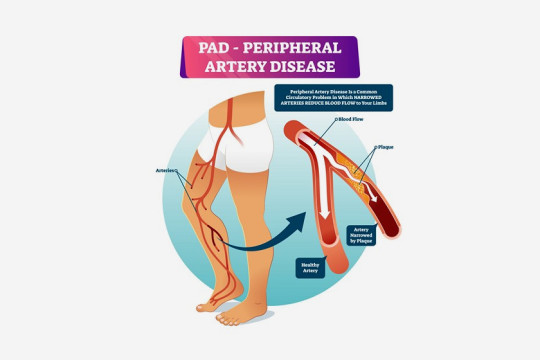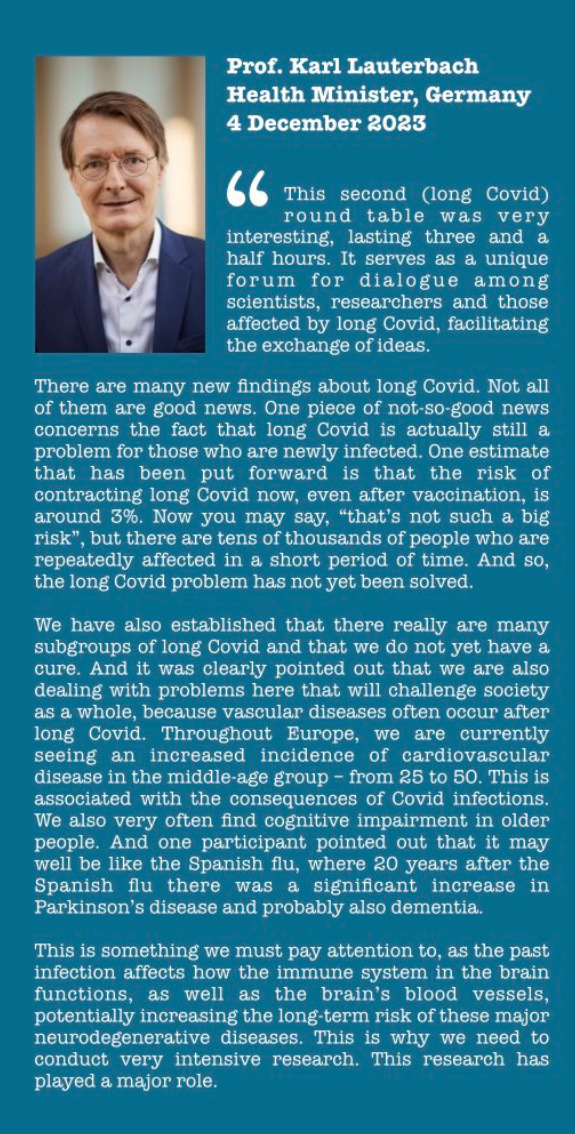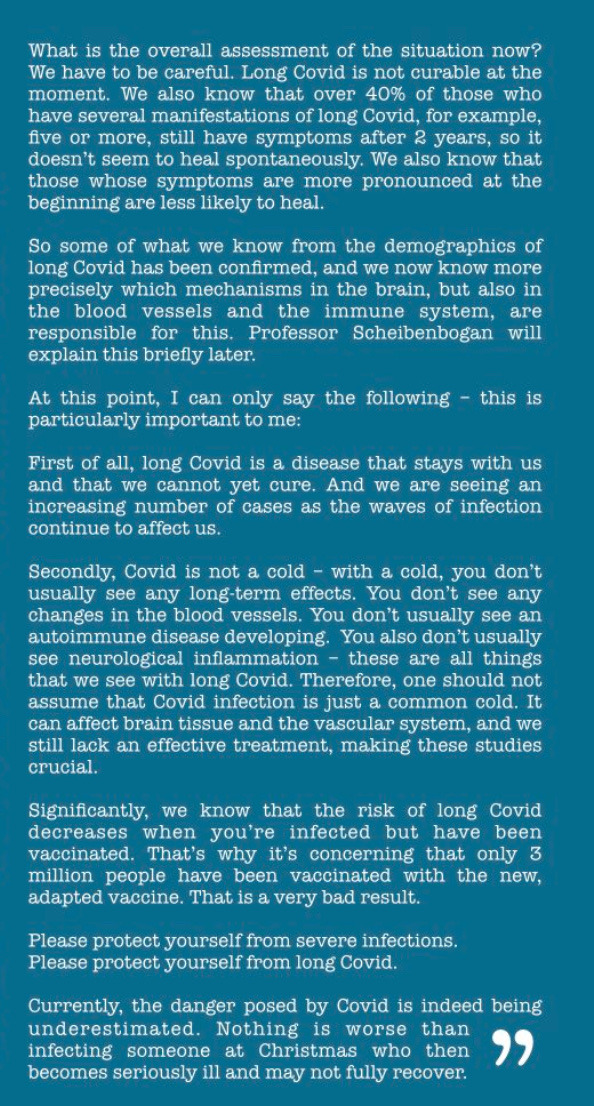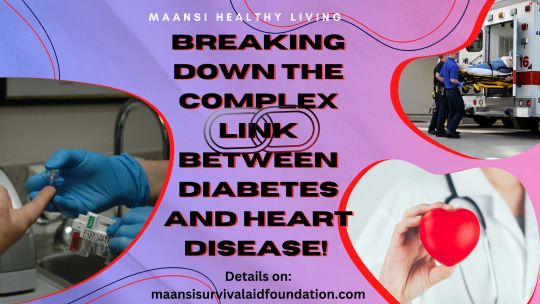#cardiovascular disease risk
Text
Physical Activity Reduces Stress-Related Brain Activity to Lower Cardiovascular Disease Risk
Key Takeaways
Results from a new study indicate that physical activity may help protect against cardiovascular disease in part by reducing stress-related brain activity
This effect in the brain may help to explain why study participants with depression (a stress-related condition) experienced the greatest cardiovascular benefits from physical activity
New research indicates that physical…

View On WordPress
0 notes
Note
I don't know which particular post about chetney you may be referring to in the post regarding to a potentially animated c3, but I personally see no harm in speculating how things could be adapted. It's both fun and a interesting creative exercise, provided one understands that they can't have solid expectations for something that would without a doubt be several years into the future at least. To me it's not much different than coming up with theories for how things may turn out - the fun is in the doing, not in being proven correct (though that would certainly be satisfying). I don't see why speculating how something would be adapted hinders one from enjoying the show as it is right now. Feel free to disregard this if I've misunderstood your post, I'm genuinely curious to hear more of your thoughts about this though
In the interest of keeping a vague post vague I am not going to provide more details, but it was about a hypothetical (ie, future in the current canon of C3) decision they felt would not be satisfying in adaptation, ie, it was not about the nature of adaptation so much as bleeding a little into decision making in Campaign 3. It was verging on "they should think about how this choice will play in the (hypothetical) eventual animated series", and that was what I didn't like. I love speculation on how a finished series might be adapted! I have engaged in a lot of that myself. This was not that.
But more importantly, I love complaining, and that post is me complaining. I think there's a really awful tendency in fandom spaces to think the only things you can complain about must be Problematic And Harmful, and also that complaining about anything means you are trying to shut it down, and those are both incorrect (and lead to the similarly toxic mentality of then trying to justify all dislike by saying things are Problematic And Harmful when they aren't).
Most of the things I complain about are not remotely problematic (though some are); many are just, in my opinion, really fucking stupid. And because I have some small number of manners and do not go onto people's own blogs or inboxes to say "hey your post is stupid" I just make a vague post about it, leave it untagged, and if anyone has a problem with my post I hope they will also either do the same on their blog or if they're really bothered, take steps to ensure they don't see my posts. You know that post that says "this website should function as a matryoshka doll of kvetching?" That is my mission statement. This blog is a place where I will be hating on harmless behavior all the time. Crack theories are a great example! I hate most of those and think the vast majority come from idiots trying to sound smart by over-complicating something that has a very simple explanation. They are also, largely, completely harmless, and people are welcome to come up with them, and I will not stop them. But I will be complaining about them on my own blog.
#answered#ultimate-queen-of-fandoms2#i actually read an article recently about how people who bottle up all frustrations are at higher risk for cardiovascular disease#so if you think about it this blog is heart-healthy self-care. it's like a brisk walk for the mind. you're welcome.
24 notes
·
View notes
Text
Drinking tea can lower the risk of cardiovascular disease

People often say that drinking tea is good for your health and can reduce the risk of cardiovascular disease because of the beneficial effects of tea polyphenols on the body. But is there scientific evidence to support this claim? Tian Ying, Chief Physician of the Department of Cardiovascular Medicine at Beijing's Tiantan Hospital affiliated with Capital Medical University, will provide insight on this topic.
Does drinking tea really help reduce the risk of cardiovascular disease?
Yes, it has scientific basis. A study published in the Journal of the American Heart Association (JAHA) found that drinking tea can help reduce the risk of cardiovascular disease.
The study analyzed the relationship between changes in high-density lipoprotein cholesterol (HDL-C) levels in the blood of over 80,000 Chinese people and tea consumption over a six-year follow-up period.
The results showed that people who regularly drank tea had a slower decline in HDL-C levels and an 8% lower risk of cardiovascular disease. HDL-C is a "good cholesterol" that corresponds to "bad cholesterol" - LDL-C. LDL-C is easily deposited on the walls of blood vessels, causing atherosclerosis, while HDL-C has a protective effect on blood vessels.
In fact, this is all due to the action of tea polyphenols. Tea polyphenols are antioxidants that can be anti-inflammatory, change the viscosity of blood, reduce blood lipids, make blood vessels more elastic, prevent microvascular rupture, and long-term consumption can make the heart and blood vessels healthier, reducing blood lipids and preventing cardiovascular disease.

How to drink tea for cardiovascular health?
Green tea: Green tea has a higher content of tea polyphenols and can slightly lower the risk of cardiovascular disease in women.
Oolong tea: Oolong tea can lower the risk of cardiovascular disease in men more, and older people who drink tea regularly can greatly reduce the risk of cardiovascular disease mortality.
To achieve the preventive effect of cardiovascular disease, you should drink at least 3-4 cups per day, with each cup being 220-230 milliliters, and drink at least 4-5 times a week. Do not drink too much at one time, but drink tea continuously in small amounts every day.
Note: Drinking tea cannot replace the role of medication. It is only a method to assist in making our body healthier. If you have cardiovascular disease, you should still seek treatment from a specialized doctor in a hospital.
8 types of tea that should not be consumed:
1.Strong tea: Overly strong tea can cause discomfort to the heart because tea leaves contain caffeine, theophylline, and other substances. Also, if you drink a lot of strong tea, the tannic acid in it will react with the iron in food to form insoluble substances that will hinder iron absorption.
2.Moldy tea: Tea leaves become moldy due to contamination by microorganisms such as Aspergillus and Penicillium. The tea brewed from moldy tea leaves has no tea aroma and can cause harm to the human body, such as causing dizziness and diarrhea. Moldy tea leaves generally have white mold spots on the surface and smell damp and musty, especially when brewing. Tea leaves should be stored in a dry place to prevent mold.
3.Tea with odors: Tea leaves contain terpenes, which are porous and easily absorb odors from other things. Some odors may contain toxins, such as the odor of paint and camphor, which can harm the human body. Tea leaves should be stored separately from odorous foods.
4.Over-brewed tea: Brewing tea for too long not only gives tea a dark color and poor taste but also reduces the nutritional value of the tea due to the oxidation of vitamins and amino acids in the tea leaves. In addition, tea that has been left for too long is easily contaminated by microorganisms in the environment, making it unhygienic.
5.Raw tea: Raw tea refers to unrolled green tea leaves that are dried directly after withering. This type of tea has the same components as fresh leaves and has a strong raw green flavor. Elderly people who drink this type of tea are very likely to experience stomach pain due to its strong irritation to the stomach mucosa. Young people may also feel discomfort in the stomach after drinking it, commonly known as "stomach scraping." Raw tea should not be brewed directly. Instead, it can be put in an oil-free iron pan and slowly roasted over low heat to remove the raw green flavor. It can be consumed after a slight roast fragrance is produced.
6.Overheated tea: Tea is generally brewed with boiling water, but it should not be consumed when it is too hot. Otherwise, it may burn the mucous membranes of the mouth and esophagus, causing ulcers. Over time, it may induce oral or esophageal cancer.
7.Burnt tea: If tea leaves are over-roasted during the production process, they will produce a burnt flavor. This type of tea has fewer effective nutrients and the components that determine the taste of the tea are destroyed to a greater extent. It may also contain certain carcinogens.
8.Overnight tea: Overnight tea contains trace amounts of amino acids, sugars, and other nutrients that become nutrients for bacteria and mold to grow. In addition, various nutrients such as tea polyphenols and vitamins inthe tea will be oxidized and decomposed, reducing the nutritional value of the tea. Drinking overnight tea is not recommended because it may cause gastrointestinal discomfort and increase the risk of bacterial infections. It is best to prepare fresh tea each time you want to drink it.

Tips for drinking tea:
1.Long-term tea consumption can help reduce the risk of cardiovascular disease.
2.Drink at least 3-4 cups of tea per day, with each cup being 220-230 milliliters, and drink at least 4-5 times a week.
3.Drinking tea cannot replace the role of medication.
4.These 8 types of tea are best avoided: strong tea, moldy tea, tea with odors, over-brewed tea, raw tea, overheated tea, burnt tea, and overnight tea.
Buy Now
#tea#green tea#chinese tea#qiandao silver needle tea#spring tea#organic tea#tea polyphenols#white tea#black tea#cardiovascular disease#health#prevention#Risk of cardiovascular disease#3-4 cups per day#4-5 times a week#avoid drinking strong tea#moldy tea#over-brewed tea#raw tea#overheated tea#burnt tea#and overnight tea
2 notes
·
View notes
Quote
High-quality diets included at least five portions of fruit and vegetables every day, two portions of fish per week and lower consumption of red meat, particularly processed meat. For those who had high levels of physical activity as well as a high-quality diet, their mortality risk was reduced by 17 per cent from all causes, 19 per cent from cardiovascular disease and 27 per cent from selected cancers — compared with those with the worst diet who were physically inactive.
Felicity Ripper, ‘Vigorous exercise is not enough to counteract the health effects of a poor diet, new study finds’, ABC
#ABC#Felicity Ripper#High-quality diets#fruit#fish#vegetables#high levels of physical activity#mortality risk#cardiovascular disease#cancers
3 notes
·
View notes
Text
Vitamin B12: What to Know
Vitamin B12: What to Know
Introduction:
Vitamin B12, also known as cobalamin, is a vital nutrient that plays a crucial role in maintaining overall health and well-being. Despite its importance, many individuals may not be aware of the signs of B12 deficiency or how it can impact their health. In this comprehensive guide, we’ll explore the significance of vitamin B12, common symptoms of deficiency, and strategies for…

View On WordPress
#anemia#animal products#B12 absorption#B12 deficiency#B12 deficiency treatment#B12 injections#B12 supplements#balanced diet#breastfeeding#cardiovascular issues#celiac disease#cobalamin#cognitive impairment#Crohn&039;s disease#dietary guidance#Dietary Guidelines#dietary intake#dietary recommendations#dietary sources#dietary supplements#DNA synthesis#fatigue#fetal development#gastric surgery#Gastrointestinal Disorders#Health and Wellness#Health Awareness#Health Education#health risks#Healthcare
1 note
·
View note
Text
Exploring the Profound Benefits of a Vegan Diet

In recent years, the popularity of veganism has surged, driven by growing awareness of its numerous health, environmental, and ethical benefits. A vegan diet, which excludes all animal products, has been shown to offer a wide range of advantages for both individuals and the planet. From improving cardiovascular health to reducing greenhouse gas emissions, the benefits of adopting a vegan lifestyle extend far beyond the plate.
Improved Heart Health:
One of the most well-documented benefits of a vegan diet is its positive impact on heart health. Research consistently shows that plant-based diets are associated with lower risks of heart disease, stroke, and hypertension. By eliminating cholesterol-rich foods like meat, dairy, and eggs, and emphasizing nutrient-dense fruits, vegetables, whole grains, and legumes, vegans can significantly lower their levels of LDL cholesterol and blood pressure, reducing the risk of cardiovascular complications.
Lower Risk of Chronic Diseases:
In addition to heart disease, a vegan diet has been linked to a reduced risk of other chronic diseases, including type 2 diabetes, certain cancers, and obesity. Plant-based foods are rich in fiber, antioxidants, vitamins, and minerals, which play crucial roles in supporting overall health and immune function. By focusing on whole, unprocessed plant foods, vegans can help protect themselves against a host of preventable diseases and improve their long-term well-being.
Weight Management:
For those looking to manage their weight effectively, a vegan diet can be a valuable tool. Plant-based foods tend to be lower in calories and saturated fat compared to animal-derived products, making them ideal for weight loss and weight management. Additionally, the high fiber content of fruits, vegetables, and whole grains helps promote feelings of fullness and satiety, reducing the likelihood of overeating and aiding in weight control.
Environmental Sustainability:
Beyond personal health benefits, adopting a vegan diet also has significant environmental implications. Animal agriculture is a leading contributor to deforestation, habitat destruction, water pollution, and greenhouse gas emissions. By abstaining from animal products, vegans can significantly reduce their carbon footprint, conserve water resources, and mitigate the negative impacts of agriculture on biodiversity and ecosystems. Transitioning to a plant-based diet is one of the most effective actions individuals can take to combat climate change and promote environmental sustainability.
Ethical Considerations:
In addition to health and environmental reasons, many people choose to adopt a vegan lifestyle out of concern for animal welfare. The factory farming industry subjects billions of animals to unimaginable suffering, including confinement, mutilation, and slaughter. By abstaining from animal products, vegans align their dietary choices with their values of compassion, non-violence, and respect for all sentient beings. Choosing plant-based foods allows individuals to live in harmony with their ethical principles and contribute to a more humane and compassionate world.
Conclusion:
The benefits of a vegan diet extend far beyond personal health, encompassing environmental sustainability, animal welfare, and ethical considerations. By embracing a plant-based lifestyle, individuals can improve their cardiovascular health, reduce their risk of chronic diseases, manage their weight, and minimize their environmental impact. Furthermore, adopting a vegan diet offers an opportunity to align one's dietary choices with values of compassion, empathy, and respect for all living beings. As veganism continues to gain momentum worldwide, it represents a powerful force for positive change, both for individuals and the planet as a whole.
#In recent years#the popularity of veganism has surged#driven by growing awareness of its numerous health#environmental#and ethical benefits. A vegan diet#which excludes all animal products#has been shown to offer a wide range of advantages for both individuals and the planet. From improving cardiovascular health to reducing gr#the benefits of adopting a vegan lifestyle extend far beyond the plate.#Improved Heart Health:#One of the most well-documented benefits of a vegan diet is its positive impact on heart health. Research consistently shows that plant-bas#stroke#and hypertension. By eliminating cholesterol-rich foods like meat#dairy#and eggs#and emphasizing nutrient-dense fruits#vegetables#whole grains#and legumes#vegans can significantly lower their levels of LDL cholesterol and blood pressure#reducing the risk of cardiovascular complications.#Lower Risk of Chronic Diseases:#In addition to heart disease#a vegan diet has been linked to a reduced risk of other chronic diseases#including type 2 diabetes#certain cancers#and obesity. Plant-based foods are rich in fiber#antioxidants#vitamins#and minerals#which play crucial roles in supporting overall health and immune function. By focusing on whole
0 notes
Text

apparently this is a very well known thing medically. Where where the resources when I got diagnosed, all of the sites just tell me to lose weight but also most foods make me put on weight. The tiktok girlies have my back at least. thank u tiktok girlies <3 <3
#PCOS already puts me at a higher risk of death#diabetes and cardiovascular diseases WHY WON'T THEY TELL YOU THINGS TO HELP IT#PCOS#medicine#medical#venting
1 note
·
View note
Text
Niacin paradox on the heart shows off: catabolism reveals potential threats on cardiovascular risk
Cardiovascular disease (CVD) is a worldwide health problem, with only a tiny proportion of the risk linked to known risk factors. Despite breakthroughs in therapeutics, the risk of CVD remains high, indicating the presence of other unidentified variables. Niacin (vitamin B3) is critical in CVD treatment but physicians in the past have speculated that niacin lacking could be a predisposing factor…
View On WordPress
#atherosclerosis#blood vessels#cardiovascular disease#cardiovascular risk#cofactor#endothelial cells#food safety#hypercholesterolemia#inflammation#nicotinamide#oxidative stress#public health#triglycerides
0 notes
Text
5 Things To Know About Peripheral Arterial Disease (PAD)

Peripheral Arterial Disease is the blockage of arteries of lower limbs due to accumulation of cholesterol, calcium, and plaques. Dive in to know more about PAD. Discover five crucial facts about Peripheral Arterial Disease (PAD) impacting millions in India. From its symptoms to the risk of heart disease and amputation, learn about conservative and advanced treatments guided by our expert Vascular and endovascular specialists in Vadodara for a balanced, personalized approach to managing PAD.
#Peripheral Arterial Disease#PAD Treatment#vascular health#Heart Disease Risk#vascular surgeon#Endovascular Procedure#Amputation Prevention#medical treatment#Healthy Living#cardiovascular health
0 notes
Text
New research finds half-cardio, half-strength training reduces cardiovascular disease risks
Approximately one in three deaths in the U.S. is caused by cardiovascular disease, according to the U.S. Centers for Disease Control and Prevention. A robust body of evidence shows aerobic exercise can reduce risks, especially for people who are overweight or obese. But few studies have compared results with resistance exercise — also known as strength or weight training — or with workout…

View On WordPress
0 notes
Text
Sleepless Nights And Heartache: Exploring The Alarming Connection Between Insomnia And Cardiovascular Events
In a world filled with hectic schedules, constant connectivity, and the pressures of modern life, sleep has become a precious commodity. Unfortunately, for many, it remains elusive. Insomnia, characterized by difficulty falling asleep or staying asleep, affects millions of people worldwide. Beyond the immediate consequences of fatigue and irritability, there is growing concern about a deeper and more alarming connection between insomnia and cardiovascular events. In this blog, we will delve into this critical topic, examining the potential links, risk factors, and strategies to mitigate the risks associated with sleepless nights and heartache.
#insomnia#cardiovascular health#heart disease#sleepless nights#chronic insomnia#risk factors#sleep disturbances#cardiovascular events#stress#inflammation#sleep hygiene#healthy lifestyle#heart attack#stroke#hypertension#CBT-I#stress management#healthy diet#exercise#quit smoking#alcohol moderation#medicine home delivery#online consultation doctor#blood test at home#online dr consultation#full body checkup#online dr consultation free#online blood test#buy medicine online#online medicine order
0 notes
Text

Cat in the Hat:
"The German Health Minister gave an important update on the Covid situation yesterday.
I’ve written up the section of his speech from the video below for easy reading.
It’s immensely refreshing to see a government minister warning of the harms of Covid in such a transparent way."
https://x.com/_catinthehat/status/1732092683508678954


Prof. Karl Lauterbach
Health Minister, Germany
4 December 2023
"This second (long Covid) round table was very interesting, lasting three and a half hours. It serves as a unique forum for dialogue among scientists, researchers and those affected by long Covid, facilitating the exchange of ideas.
There are many new findings about long Covid. Not all of them are good news. One piece of not-so-good news concerns the fact that long Covid is actually still a problem for those who are newly infected. One estimate that has been put forward is that the risk of contracting long Covid now, even after vaccination, is around 3%. Now you may say, "that's not such a big risk" , but there are tens of thousands of people who are repeatedly affected in a short period of time. And so, the long Covid problem has not yet been solved.
We have also established that there really are many subgroups of long Covid and that we do not yet have a cure. And it was clearly pointed out that we are also dealing with problems here that will challenge society as a whole, because vascular diseases often occur after long Covid. Throughout Europe, we are currently seeing an increased incidence of cardiovascular disease in the middle-age group - from 25 to 50. This is associated with the consequences of Covid infections.
We also very often find cognitive impairment in older people. And one participant pointed out that it may well be like the Spanish flu, where 20 years after the Spanish flu there was a significant increase in Parkinson's disease and probably also dementia.
This is something we must pay attention to, as the past infection afiects how the immune system in the brain functions, as well as the brain's blood vessels, potentially increasing the long-term risk of these major neurodegenerative diseases. This is why we need to conduct very intensive research. This research has played a major role.
What is the overall assessment of the situation now?
We have to be careful. Long Covid is not curable at the moment. We also know that over 40% of those who have several manifestations of long Covid, for example, five or more, still have symptoms after 2 years, so it doesn't seem to heal spontaneously. We also know that those whose symptoms are more pronounced at the beginning are less likely to heal.
So some of what we know from the demographics of long Covid has been confirmed, and we now know more precisely which mechanisms in the brain, but also in the blood vessels and the immune system, are responsible for this. Professor Scheibenbogan will explain this briefly later.
At this point, I can only say the following - this is particularly important to me:
First of all, long Covid is a disease that stays with us and that we cannot yet cure. And we are seeing an increasing number of cases as the waves of infection continue to affect us.
Secondly, Covid is not a cold - with a cold, you don't usually see any long-term effects. You don't see any changes in the blood vessels. You don't usually see an autoimmune disease developing. You also don't usually see neurological inflammation - these are all things that we see with long Covid. Therefore, one should not assume that Covid infection is just a common cold. It can affect brain tissue and the vascular system, and we still lack an effective treatment, making these studies crucial.
Significantly, we know that the risk of long Covid decreases when you're infected but have been vaccinated. That's why it's concerning that only 3 million people have been vaccinated with the new, adapted vaccine. That is a very bad result.
Please protect yourself from severe infections.
Please protect yourself from long Covid.
Currently, the danger posed by Covid is indeed being underestimated. Nothing is worse than infecting someone at Christmas who then becomes seriously ill and may not fully recover."
Alt text is included in all images of this post.
#covid#not a cold#please wear a mask#pandemic#pandemic not over#long covid#Karl Lauterbach#Germany#German health minister
10K notes
·
View notes
Text
How to prevent heart disease
“Guarding Your Heart: A Comprehensive Guide to Preventing Heart Disease”
Imagine waking up every morning with a heart that feels light, strong, and ready to conquer the day. A heart that’s full of life and vitality, enabling you to do all the things you love without worrying about the looming threat of heart disease. This dream can become your reality, and in this article, we’re going to show…

View On WordPress
#Cardiac Wellness#Cardiovascular Health#Cardiovascular Prevention#Healthy Lifestyle Choices#Heart Disease Awareness#Heart Disease Prevention#Heart Disease Risk Factors#Heart Health Tips#Heart-Healthy Diet#Heart-Healthy Living#Preventing Heart Conditions
0 notes
Quote
Research led by the University of Sydney found intense exercise does not counteract the detrimental effects of a poor diet on a person's mortality risk. The study found people who had high levels of physical activity as well as a high-quality diet had the lowest risk of death, showing you can not outrun a poor diet. Researchers examined the independent and joint effects of diet and exercise on cardiovascular disease, cancer and all-cause mortality using 360,600 British adults from the UK Biobank. The UK Biobank is a large-scale study containing in-depth biological, behavioural, and health information from participants.
Felicity Ripper, ‘Vigorous exercise is not enough to counteract the health effects of a poor diet, new study finds’, ABC
#ABC#Felicity Ripper#University of Sydney#exercise#diet#mortality risk#physical activity#UK Biobank#cardiovascular disease#cancer
3 notes
·
View notes
Text
Breaking Down the Complex Link Between Diabetes and Heart Disease!
Breaking down the complex link between Diabetes and Heart disease. providing valuable insights
Diabetes and heart disease, two of the most prevalent and intertwined health concerns, present formidable challenges to global well-being. Extensive research has unraveled an intricate and complex relationship between diabetes and heart disease. Brace yourself as we embark on a thrilling journey into the depths of the intricate connection between diabetes and heart disease, illuminating the…

View On WordPress
#Cardiovascular disease#diabetes#diabetes and heart disease#Diabetes and heart disease biological processes involved#diabetes and heart disease shared risk factors#diabetes mellitus#diabetes treatment#Healthy diet#Healthy lifestyle#heart disease#heart disease symptoms#High blood pressure#hyperglycemia#insulin resistance and heart disease#Lifestyle modifications to reduce the risk of heart disease in diabetes#link between diabetes & ed#link between diabetes & heart disease#link between diabetes ed & heart disease#Metabolic syndrome#Obesity#Prevention tips#reverse diabetes#Stress#type 2 diabetes#Vascular demage
0 notes
